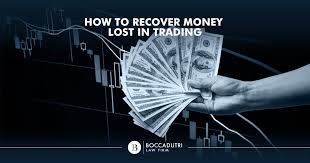Understanding Trading Scams: How to Protect Yourself
In recent years, trading scams have become increasingly report a cryptocurrency scam prevalent, taking advantage of the rise of online trading platforms and the growing interest in stock markets, cryptocurrencies, and other financial instruments. These scams can lead to significant financial losses and emotional distress for victims, making it crucial to understand how they operate and how to protect yourself.
What are Trading Scams?
Trading scams typically involve fraudulent schemes where con artists promise high returns on investments, often with little risk. These scams can take various forms, including:
- Ponzi Schemes: In these schemes, returns are paid to earlier investors using the capital from newer investors rather than from profit earned by the operation of a legitimate business. Ponzi schemes can sustain themselves for a while but eventually collapse when there are not enough new investors.
- Pump and Dump: This scam involves artificially inflating the price of a stock through false or misleading statements (the “pump”), allowing scammers to sell their shares at a profit before the price crashes. Once they sell, unsuspecting investors are left holding devalued stocks.
- Forex and Crypto Scams: As forex and cryptocurrency trading grow in popularity, so do scams in these areas. Fraudsters may promise high returns on forex trades or cryptocurrency investments, often using fake testimonials and manipulated results to lure in victims.
- Signal Seller Scams: In these schemes, individuals or groups sell “trading signals” that supposedly indicate when to buy or sell assets. However, these signals may be completely arbitrary or based on past performance that cannot be replicated.
How to Recognize a Trading Scam
Identifying a trading scam can be challenging, especially for inexperienced investors. Here are some red flags to watch out for:
- Unrealistic Returns: If an investment opportunity promises guaranteed high returns with little or no risk, it’s likely too good to be true. All investments carry some level of risk, and anyone claiming otherwise is likely deceiving you.
- Pressure Tactics: Scammers often use high-pressure tactics to rush you into making decisions. If you’re feeling rushed or pressured to invest quickly, take a step back and reconsider.
- Lack of Regulation: Legitimate investment opportunities are usually registered with regulatory bodies, such as the Securities and Exchange Commission (SEC) in the U.S. If a trading platform or opportunity is unregulated, it’s a significant warning sign.
- Complicated Language and Jargon: Scammers often use complex financial jargon to confuse and intimidate potential victims. If you don’t understand the investment, it’s best to avoid it.
Protecting Yourself from Trading Scams
To safeguard yourself from trading scams, consider the following tips:
- Do Your Research: Always research the investment opportunity thoroughly. Look for reviews, testimonials, and any regulatory information. Check if the company or individual is registered with the relevant authorities.
- Start Small: If you’re exploring a new investment opportunity, start with a small amount of money that you can afford to lose. This approach allows you to test the waters without risking significant capital.
- Use Reputable Platforms: Stick to well-known, regulated trading platforms. Read user reviews and check their regulatory compliance to ensure your funds are secure.
- Trust Your Instincts: If something doesn’t feel right, trust your instincts. Take the time to seek advice from trusted friends or financial advisors before making any commitments.
- Educate Yourself: The more knowledgeable you are about trading and investing, the better equipped you’ll be to recognize potential scams. Consider taking courses or attending seminars to improve your financial literacy.
Conclusion
Trading scams can take many forms, but the key to protecting yourself is awareness and education. By recognizing the red flags and staying informed about legitimate investment opportunities, you can reduce your risk of falling victim to these fraudulent schemes. Remember, if an investment opportunity seems too good to be true, it probably is. Always proceed with caution and seek expert advice when in doubt.

